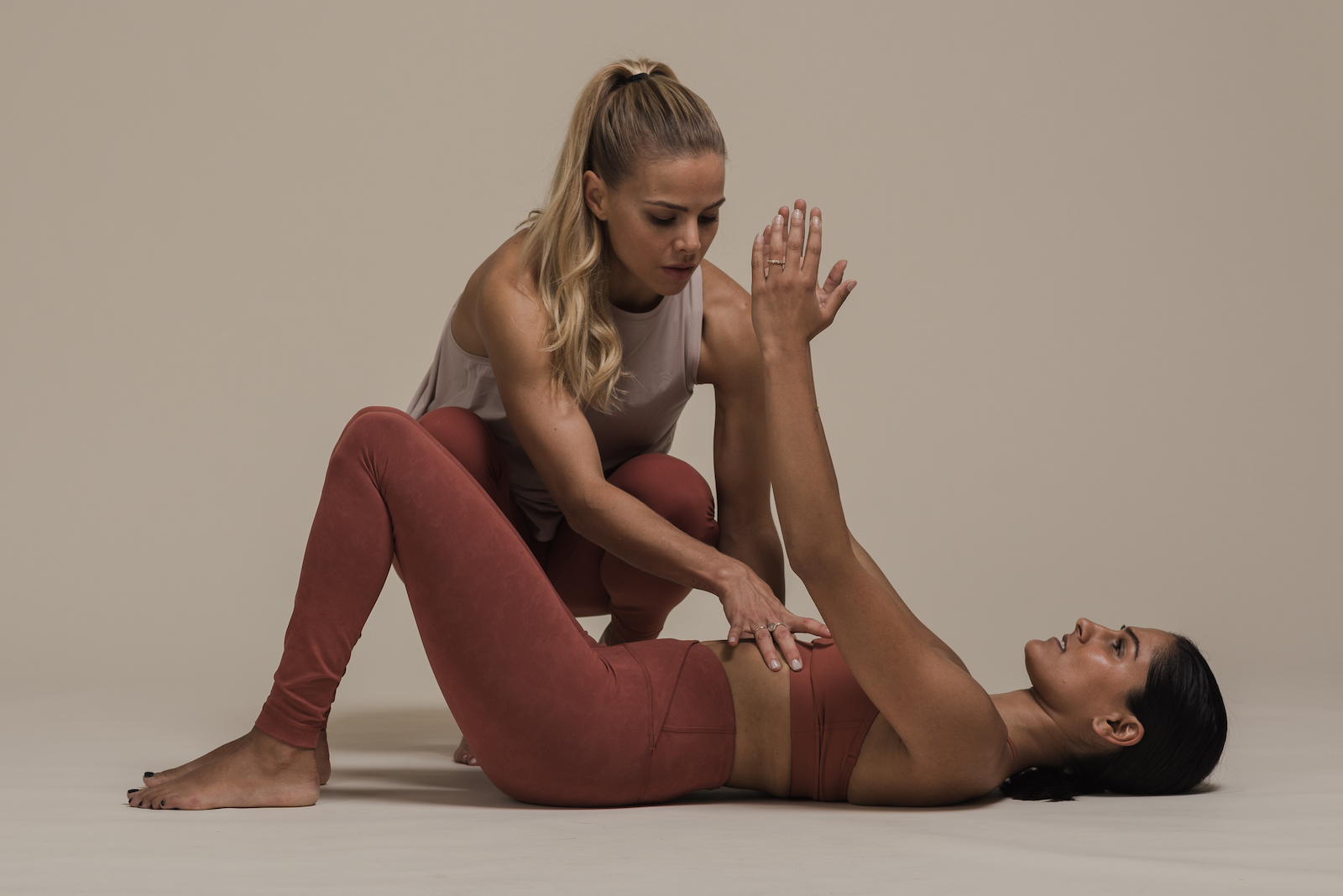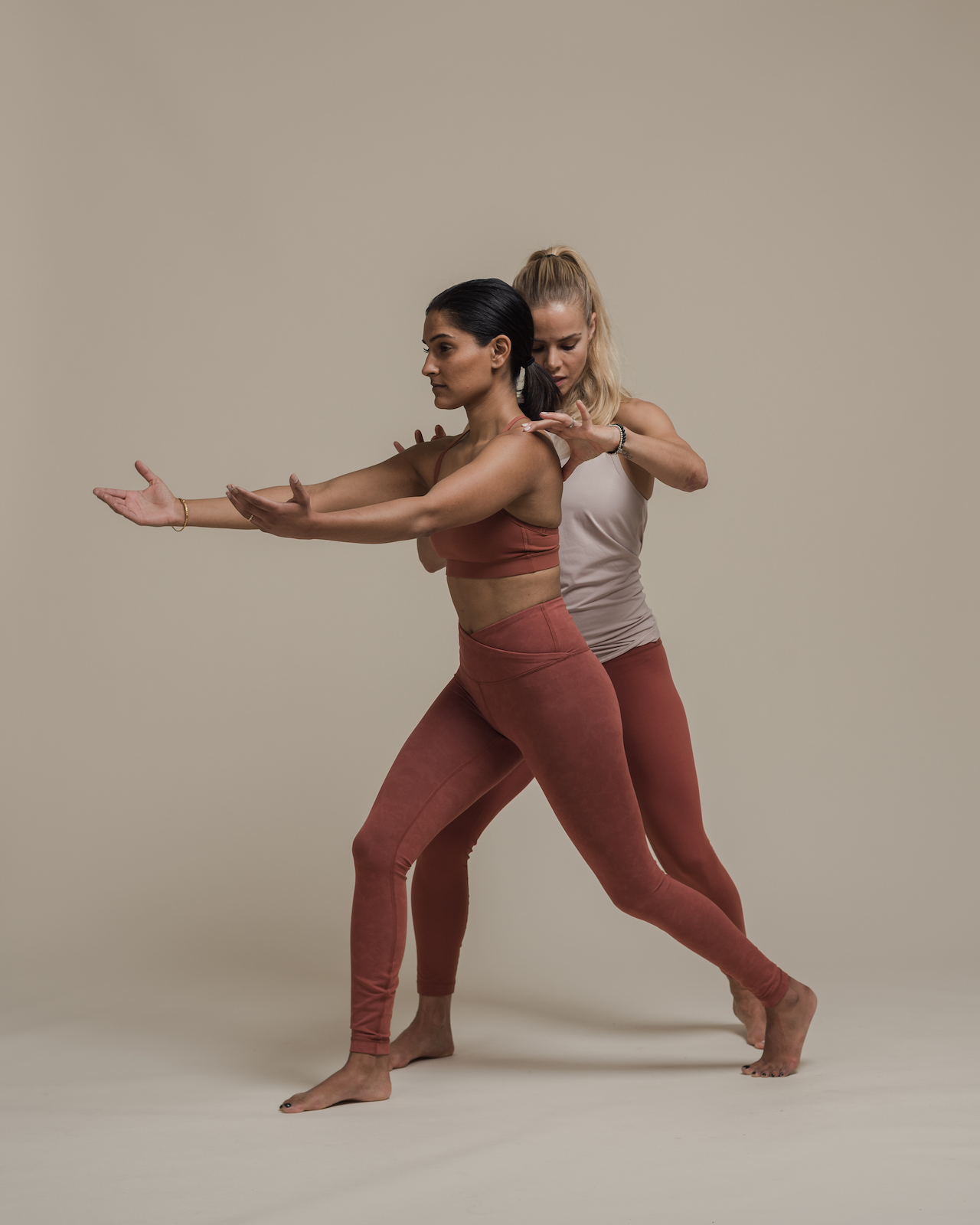The sponge of the workout mat tempers the feeling of the hard floor as you push down and away, sweat running down your back—the quintessential physical sensations of a good workout. There are mental sensations of a workout too, but we don’t as often pause to feel those. At a new studio in Gastown, two instructors are pairing breathwork and movement, helping to knit the inner self with the physical.
At A La Ligne, Katie McKenzie and Taren Grewall practice pilates, strength training and yoga in a way they call trauma informed, a term that has emerged over the past few decades along with the understanding of how traumatic events and long-term stressors can profoundly affect our nervous systems. Interest in trauma and the body has been sharply on the rise, with psychiatrist Bessel van der Kolk’s 2014 book delving into trauma, The Body Keeps the Score, spending over 140 weeks on the New York Times bestseller list.
For McKenzie, being trauma-informed means focusing on how movement in the body is experienced internally as opposed to looks externally. “It really delves and drops into how breath is the key communication tool between mind and body, and how a lot of our trauma is sitting in our body,” she says. “Our brain can’t make logic out of it because the body doesn’t think with a logical mind.”
A La Ligne uses breathwork to slowly encourage awareness of what’s happening in the body as you move. The program aims to contravene high-impact and injury prone fitness with intentionally low-impact workouts. No muscle is overlooked, yet no body part is overworked, putting individuals on a path towards a stronger, healthier, more mindful relationship between body and soul.

Fitness, A La Ligne’s founders say, can be a tender topic. The language used in gyms and exercise studios is often a wolf-in-sheep’s-clothing masking fatphobia and toxic-positivity. Subtly triggering vocabulary meant to inspire the “best” version of ourselves encourages us to earn calories or obtain a summer body. The vernacular masquerading as fitspiration can be intimidating and damaging. McKenzie and Grewall instead try to close the loop between physical and mental health, approaching exercise and movement in a way that avoids damaging self esteem or centring appearance or weight goals.
McKenzie has over a decade of experience in the fitness industry; her work was initially based in intense exercise regimes such as TRX (total body resistance exercise) and HIIT (high intensity interval training) but shifted to a softer low-impact approach when she became a mother.
An instructor’s inspiring words in the heat of an intense workout class can leave people emotionally raw, McKenzie says. While it’s great to tap into your feelings, that level of vulnerability isn’t necessarily suitable for all spaces. It can leave people feeling uncomfortable about returning to the class and essentially, re-traumatize them. Emotionally explosive scenarios are alarming for those who did not actively seek movement therapy. A La Ligne says they can guide individuals through that experience and cultivate a space that supports these types of responses.
“Trauma-informed is when you want to help coax open the window of tolerance. I have had those classes and it felt really cathartic and it was exactly what I needed but then how do you support the room to close and to allow that emotional experience to not be so overwhelming that you end up carrying it outside into every part of your world?” says McKenzie.

A La Ligne guides their clients through their practice in a way that holds space for their trauma without the emotional hangover. In practice it could look like walking clients through a plank position with a variety of progressions, increasing their heart rate which can mimic a trauma response. The client will be asked to embrace their stillness. If there is a shock to the nervous system instructors can ground the minds’ fight or flight response by guiding clients through their senses. Feel your extremities, whether it’s hands on a mat holding you up or shift your perspective to think of your hands as pushing the floor away for a new sensation within the same physical form.
At the root of their mission, A La Ligne is about the understanding that movement isn’t a punishment and you cannot punish your body into feeling better. Focusing on what the body needs, whether it’s high-intensity exercise for a moment or a softer approach, will always be a better fit. Give power back to breathwork, be purposeful, enter into a dialogue with your body, give yourself permission to feel whatever emotions arise without being explosive.
Whether you’re exposing your heart on a reformer or looking within on the mat, A La Ligne closes the mind-body loop through movement so clients can safely come back to the same level of intensity again.









